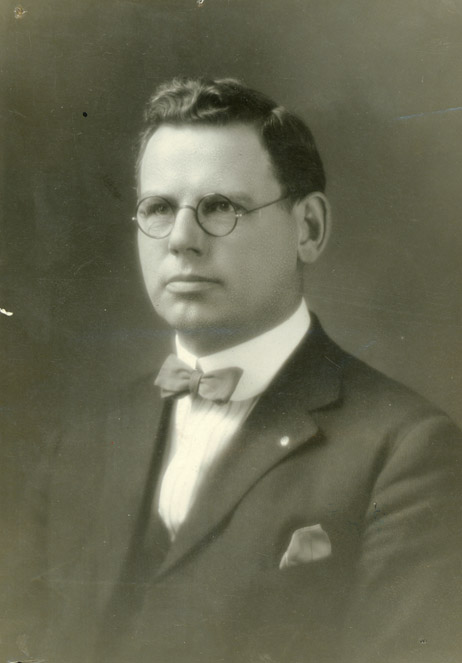Background on Roscoe Thatcher

Roscoe W. Thatcher
Born in Chatham Center, Ohio, on Oct. 5, 1872, Roscoe W. Thatcher enjoyed a distinguished career as an agricultural chemist and administrator before becoming the eleventh and final President of the Massachusetts Agricultural College. Having moved with his family from Ohio to the Nebraska prairies at the age of 13, Thatcher worked his way through college, earning his BS (1898) and MA (1901) in chemistry from the University of Nebraska, Thatcher worked for several years at Washington State College and the University of Minnesota. Although known for his research on the chemistry of flour and insecticides, Thatcher also proved himself a capable administrator, serving as Director on the Agricultural Experiment Station in Washington State (1907-1913), as Dean of Agriculture at Minnesota (1917-1921), and as Director of the New York State Agricultural Experiment Station in Geneva and Ithaca. His scholarly reputation earned Thatcher election as a fellow of the American Association for the Advancement of Science and the American Society of Agronomy, among other honors, and honorary degrees from his alma mater as well as Hobart College, Amherst College, and the Catholic University of Chile. His prominence earned his a position as the only eastern representative on the Agricultural Conference Commission convened by President Calvin Coolidge in 1924-1925.
Thatcher arrived in the presidency of MAC in 1927 following a protracted struggle between the state legislature and the college's Board of Trustees over the issue of "State House control." Apart from the printing of federally-funded Experiment Station and Extension Service publications, nearly all college operations were effectively managed by the state, and Thatcher was brought in on the proviso that he would manage the College under existing institutional arrangements, that is, as an autonomous part of the State Department of Education under the fiscal supervision of the State Commission on Administration and Finance.
Perhaps the most notable event of Thatcher's presidency was the change in name of the institution from Massachusetts Agricultural College to Massachusetts State College, reflecting a longer-term shift in emphasis in the college's course offerings and broadening of the curriculum. Thatcher helped spur a number of changes in student life, including revising the system of freshman dormitories, reorienting vocational training at the college toward citizenship education, and starting the student health service, and he instituted a more profound shift by expanding the college's two-year program in practical agriculture and renaming it the Stockbridge School of Agriculture in May 1928. His tenure in office, however, was brief. Declining health coupled with the limits of state control and the financial stress brought about by the onset of the Great Depression and prevented him from more vigorously reshaping the course of the college's development. Forced to resign in 1932 due to poor health, Thatcher was appointed Research Professor of Chemistry by the Trustees, the position he held until late in 1933 when he died at his desk in Goessmann Hall.

